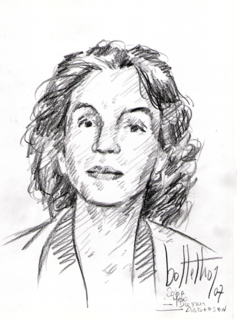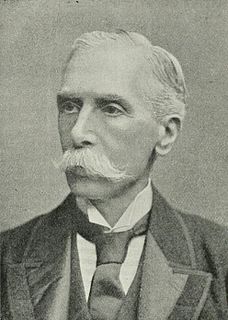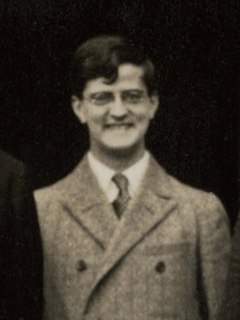A Quote by Sophia de Mello Breyner Andresen
Poetry is my understanding with the world, my intimacy with things, my participation in what is real, my engagement with voices and images. This is why a poem speaks not of ideal life but of actual life: the angle of a window; the reverberation of streets, cities, rooms; shadows along a wall.
Related Quotes
Poetry is a river; many voices travel in it; poem after poem moves along in the exciting crests and falls of the river waves. None is timeless; each arrives in an historical context; almost everything, in the end, passes. But the desire to make a poem, and the world's willingness to receive it--indeed the world's need of it--these never pass.
The statement of ideas in a poem may have to do with logic. More profoundly, it may be identified with the emotional progression of the poem, in terms of the music and images, so that the poem is alive throughout. Another, more fundamental statement in poetry, is made through the images themselves those declarations, evocative, exact, and musical, which move through time and are the actions of a poem.
In great cities, spaces as well as places are designed and built: walking, witnessing, being in public, are as much part of the design and purpose as is being inside to eat, sleep, make shoes or love or music. The word citizen has to do with cities, and the ideal city is organized around citizenship -- around participation in public life.
One is seduced and battered in turn. The result is presumably wisdom. Wisdom! We are clinging to life like lizards. Why is it so difficult to assemble those things that really matter in life and to dwell among them only? I am referring to certain landscapes, persons, beasts, books, rooms, meteorological conditions, fruits. In fact, I insist on it. A letter is like a poem, it leaps into life and shows very clearly the marks, perhaps I should say thumbprints, of an unwilling or unready composer.
My life, which seems so simple and monotonous, is really a complicated affair of cafés where they like me and cafés where they don't, streets that are friendly, streets that aren't, rooms where I might be happy, rooms where I shall never be, looking-glasses I look nice in, looking-glasses I don't, dresses that will be lucky, dresses that won't, and so on.
... I was reminded of a remark of Willa Cather's, that you can't paint sunlight, you can only paint what it does with shadows on a wall. If you examine a life, as Socrates has been so tediously advising us to do for so many centuries, do you really examine a life, or do you examine the shadows it casts on other lives? Entity or relationships? Objective reality or the vanishing point of a multiple perspective exercise? Prism or the rainbows it refracts? And what if you're the wall? What if you never cast a shadow or rainbow of your own, but have only caught those cast by others?
One of the things that was really influential early on was Ezra Pound's Cantos, one poem he worked on for 50 years. It's epic. I had a great deal of difficulty understanding it. One of the problems was you'd be reading along in English and he would move to a Chinese ideogram or French-he actually used seven different languages in a given poem. And for somebody who's not fluent in different languages it has the impact of rupturing your way of understanding something.






































